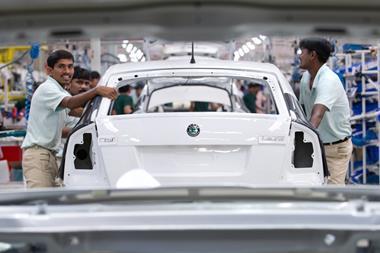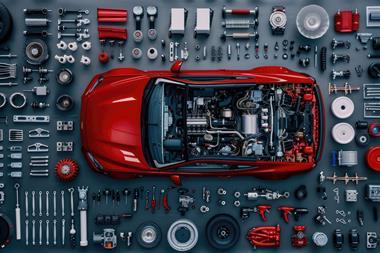 Renault has driven the change and is now driving the future; Nissan is powering along with 'Power 88' (aimed at achieving an 8% global market share and an 8% return on capital); and Volkswagen (VW) is working on Strategy 2025+ as it goes about rebuilding after the diesel scandal. Ford has ditched One Ford and is now looking for new ways to be fit for the 21st century: cutting excess model variants, reusing manufacturing equipment, and accelerating the development and introduction of more electric vehicles. Meanwhile, PSA will shortly announce its new plan for Opel/Vauxhall, 100 days after the acquisition was completed.
Renault has driven the change and is now driving the future; Nissan is powering along with 'Power 88' (aimed at achieving an 8% global market share and an 8% return on capital); and Volkswagen (VW) is working on Strategy 2025+ as it goes about rebuilding after the diesel scandal. Ford has ditched One Ford and is now looking for new ways to be fit for the 21st century: cutting excess model variants, reusing manufacturing equipment, and accelerating the development and introduction of more electric vehicles. Meanwhile, PSA will shortly announce its new plan for Opel/Vauxhall, 100 days after the acquisition was completed.
The fact that car companies periodically set out their strategies in investor presentations is both welcome and unusual; few other industries are quite so explicit. But companies of course play games, letting out snippets of information which leave analysts wanting more. For example, Renault recently said that it would launch two new SUVs for Europe, but gave little away on which segments these would be in, where the models would be made, in what volumes and when they would come out. On such occasions, it falls to others to hunt out additional sources and in this case it was not difficult to find half the answer: reliable press reports, apparently derived from Renault Spain sources, said that one of these would be a second B-segment SUV to be made in Valladolid alongside the Captur.
On other occasions, strategic statements can be so general and all-embracing as to be almost meaningless. Nissan’s 'Power 88' includes the following three priority areas: delivering high-quality, innovative new products; enhancing visibility of the company’s products and brands; and strengthening the Renault-Nissan Alliance. Excellent aims, but also rather simplistic and obvious; surely any car company, indeed any major international company in just about any sector, should be looking at delivering high-quality products and making sure they are visible to the public? But 'Power 88' does include more detail, if you look closer.
Meanwhile, VW’s Strategy 2025+ is remarkably detailed, setting out action plans in 16 key areas. It is an excellent example of a statement which plays a significant role in establishing the company’s credibility, and should help to restore its reputation. The diesel scandal at VW has led to a comprehensive review of almost every aspect of the sprawling company’s operations – and having gone through all this soul-searching, it suits VW’s communication strategy to lay out its plans for the future clearly and openly.
It is also worth noting that setting out plans in detail exposes a company’s management to analysts’ assessment of their performance against stated targets over a period of time. With this in mind, there is a risk that management will publicly set themselves conservative targets which they can confidently meet.
Strategic statements, of which we have a surfeit from vehicle-makers just now, play a variety of roles; so long as those reading them do so with an enquiring mind, assessing not just what it is said, but also why it is being said, then for the reader at least they have a value.


































